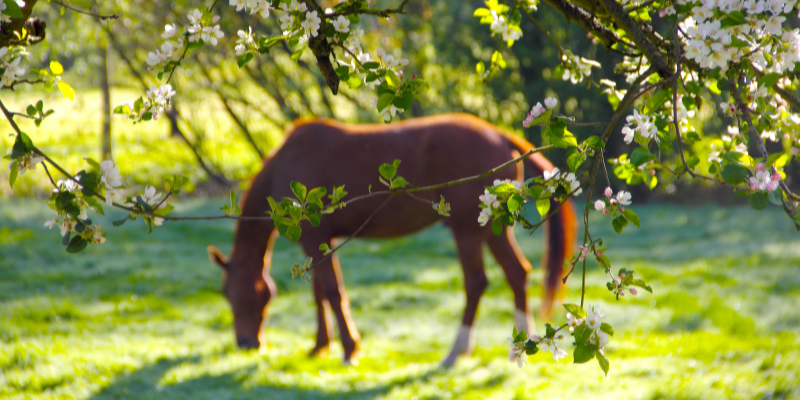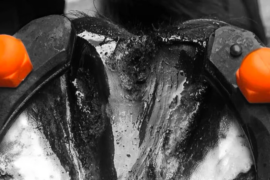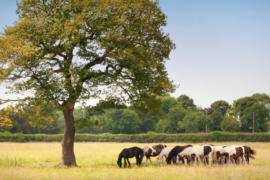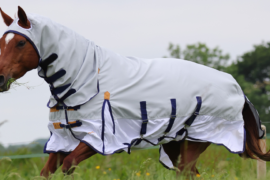Written by Dr. Stephanie Wood, Head of Nutritional Compliance, Dodson & Horrell
Spring and summer are when things generally get easier with our horses. The longer
days give us more time, and the drier weather allows our horses to be in the field
more. But for those with horses and ponies prone to laminitis, the warmer, drier
weather and greener fields are not so welcome, as although laminitis is now reported
in all seasons in the UK, it is still more common in spring and summer.
The main risk factor for laminitis is insulin dysregulation. Insulin dysregulation is
where the body produces an abnormal insulin response to sugar, leading to insulin
staying in the blood for longer than it should, causing damage to the cells. This
damage leads to the painful signs of laminitis we see in affected horses and ponies.
Insulin dysregulation can develop in horses and ponies that are overweight, and in
those that are underweight when associated with other metabolic conditions.
Feeding those with insulin dysregulation can seem daunting, but by feeding a lower
sugar and starch diet the risk can be reduced. Fibre should form the majority of the
diet as it’s needed for healthy digestive function. Feeding a minimum of 1.5% body
weight (as dry matter) of a low starch and sugar forage daily promotes normal
digestive function whilst reducing the risks of high circulating insulin. Forage can
provide considerable amounts of energy, so for overweight horses and ponies, a
source of vitamins and minerals is all that is needed to achieve a balanced diet. Feeding a vitamin and mineral supplement or a balancer is ideal to provide your horse with prebiotics, probiotics and hoof support whilst also maintaining healthy digestive function.
For horses and ponies who always seem to be hungry, Slim Down and Safe &
Sound are two alternatives as they are low in starch, sugar and energy whilst being
high in fibre. Both products have a high feeding rate, allowing you to feed a hearty
portion that helps your horse or pony feel satisfied. Slim Down is particularly useful
for those who have poor dentition, as it is easier to chew.
Laminitis can also affect horses and ponies who struggle to maintain weight due to
other metabolic issues. Increasing energy intake by giving feeds higher in oil is ideal
as they enable the diet to remain low in starch and sugar, whilst the extra energy
supports weight gain. D&H’s CushCare Condition is a high oil, high energy, low
starch and sugar crumble specifically designed to support condition in those with
metabolic issues. This feed also supports immune function through plant-derived
antioxidants, and digestive processes through the addition of prebiotics and
probiotics. It can be fed damp or soaked fully into a tasty mash, tempting even the
fussiest of eaters.
If you are unsure of the best option to support your horse or pony, reach out to the
D&H nutritional helpline where the friendly team is on hand to ensure every horse
receives excellent nutrition and remains happy and healthy.

